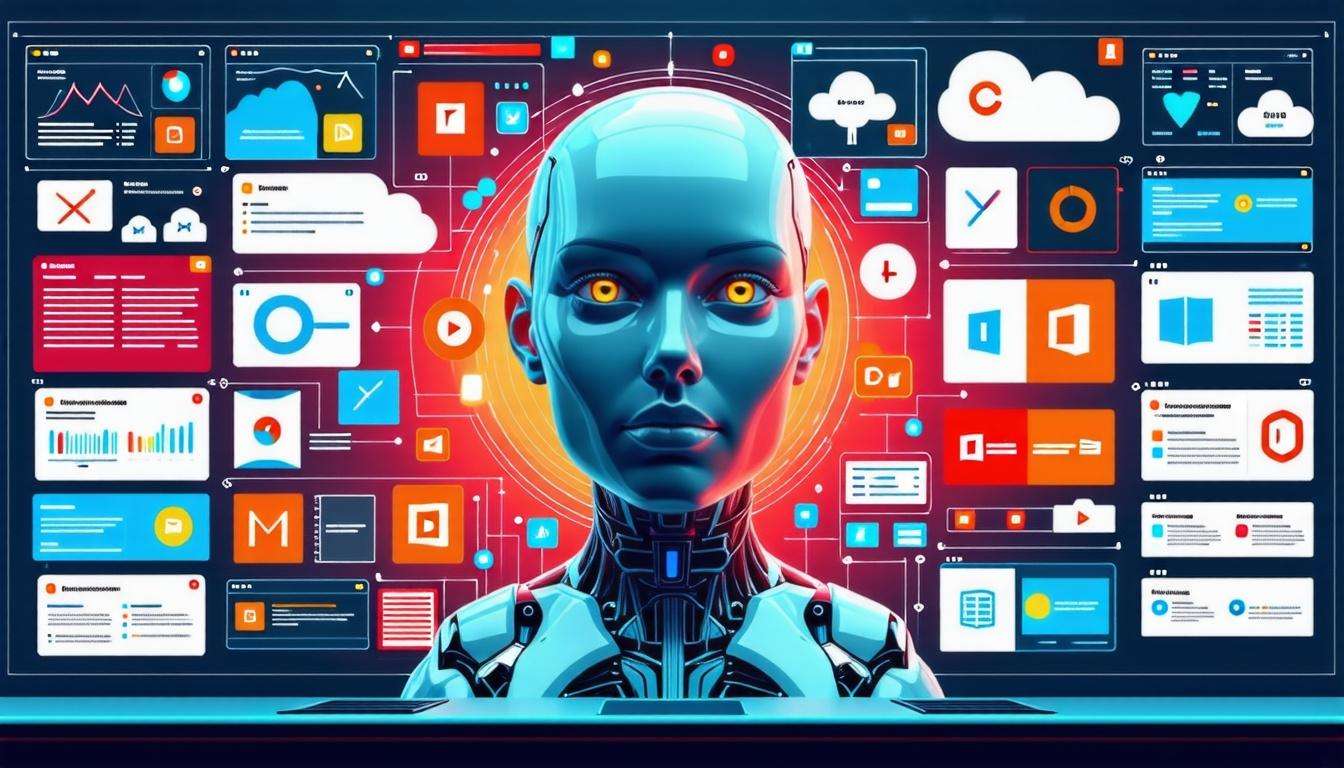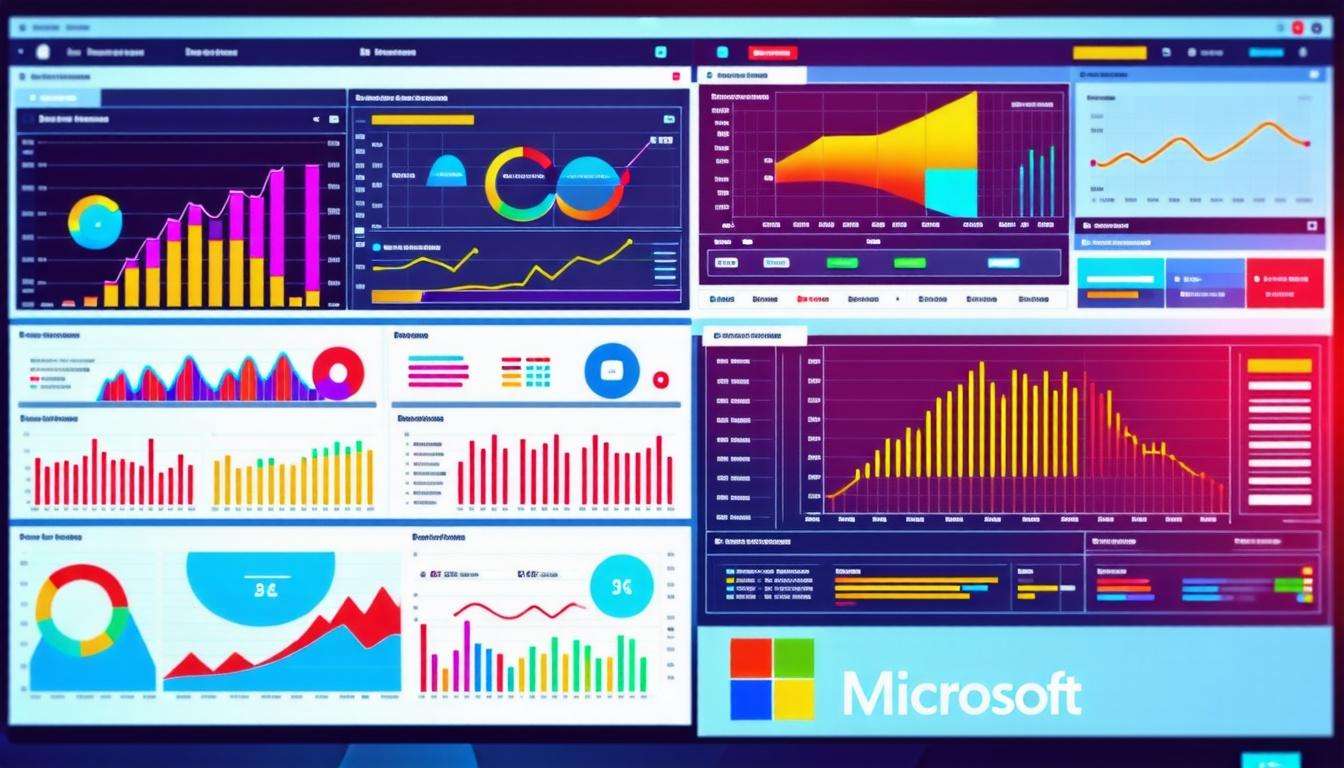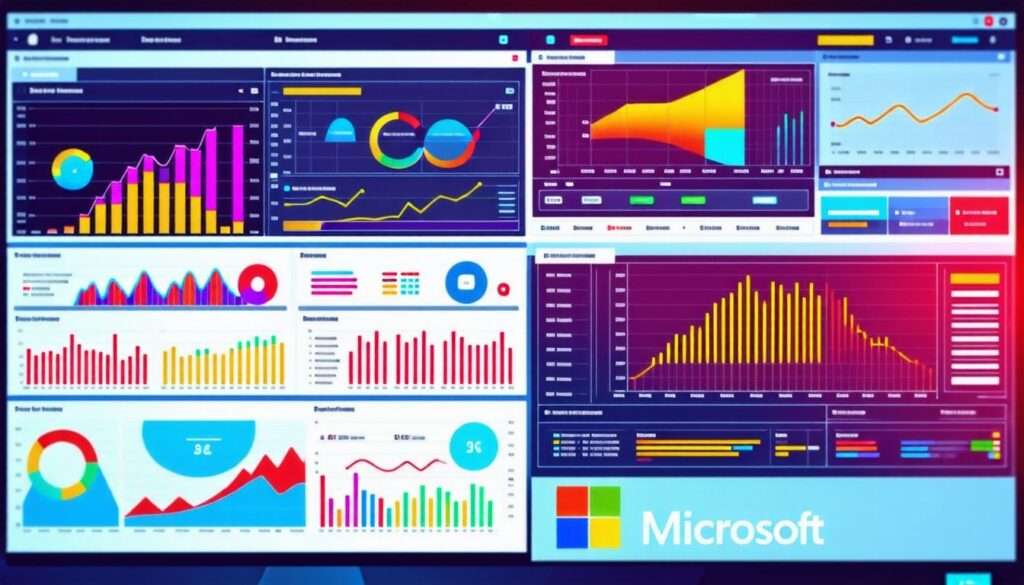Microsoft’s AI ecosystem is at the forefront of the tech industry, outpacing Salesforce and AWS. With 45% of new case studies centered on generative AI, Microsoft combines generative and predictive capabilities. This allows businesses to manage customer inquiries efficiently and automate tasks effectively.
While Salesforce promotes its Einstein AI for customer relationship management, Microsoft offers strong tools like Azure AI and Copilot. These resources increase productivity and allow smarter decision-making. This article examines how Microsoft’s innovative strategies provide a competitive edge in the fast-changing world of artificial intelligence.
Key Takeaways
Microsoft leads the cloud AI market with 45% of new case studies and 62% in generative AI, surpassing Salesforce and AWS.
More than 85% of Fortune 500 companies are utilizing’s AI capabilities, establishing the company as a leader in AI-driven enterprise transformation.
By combining generative and predictive AI, Microsoft provides a more complete solution compared to Salesforce’s focus on generative AI alone.
The introduction of ten pre-built autonomous agents for Dynamics 365 highlights Microsoft’s proactive approach to enterprise AI.
Though Salesforce offers innovative AI solutions, they may not match the extensive ecosystem and enterprise focus that Microsoft provides
Complete AI Integration in the Microsoft Ecosystem

Microsoft’s AI integration is changing how businesses operate. It combines artificial intelligence, machine learning, and data analytics to help companies work smarter. With tools like Azure AI and Microsoft 365, organizations can automate tasks and gain valuable AI-driven insights.
For example, Microsoft’s Copilot Studio allows users to create AI agents easily. These agents can quickly answer customer questions, saving time and increasing satisfaction.
In comparison, Salesforce focuses mainly on customer relationship management and uses generative AI to improve interactions. Conversely, AWS specializes in cloud services but lacks the deep AI integration that Microsoft offers.
With over 100,000 organizations using Microsoft’s AI solutions, their effectiveness is clear. Microsoft provides a unified platform that supports digital transformation and boosts productivity across different industries.
Feature | Microsoft | Salesforce | AWS |
|---|---|---|---|
AI Integration | Complete across tools | Focused on CRM | Strong in cloud services |
User Base | 100,000+ organizations | CRM-focused companies | Different industries |
Superior AI-Driven Insights and Analytics Capabilities

Microsoft’s AI ecosystem offers superior AI-driven insights and analytics, surpassing Salesforce and AWS. This enables businesses to make faster, smarter decisions. For example, Microsoft uses machine learning and data analytics to improve data understanding.
With tools like Azure and Power BI, Microsoft makes data visualization easy. Users can spot trends and patterns quickly. A retailer, for instance, can see which products sell best during the holiday season. This predictive analytics gives businesses a strong competitive advantage.
Salesforce focuses on customer relationship management. While it offers good AI features, it doesn’t provide the in-depth insights that Microsoft does. AWS excels in traditional AI but lacks seamless integration.
Microsoft’s emphasis on automation and digital transformation makes it a leader in AI. By integrating AI into its cloud services, Microsoft helps companies improve efficiency and decision-making.
Feature | Microsoft AI | Salesforce | AWS |
|---|---|---|---|
Data Visualization | Strong with Power BI | Moderate | Limited |
Predictive Analytics | Advanced | Basic | Moderate |
AI Integration | Seamless | Good | Good |
Enhanced Automation and Productivity Tools in Microsoft AI Solutions
Microsoft’s AI solutions are revolutionizing business operations with enhanced automation and productivity tools that save time and money. For example, Microsoft Copilot helps users write emails and manage tasks automatically, freeing up time for creative work.
A major advantage of Microsoft AI is its use of Natural Language Processing (NLP). This technology allows chatbots to engage with customers naturally. Companies like Citibank use AI assistants for quick balance checks and payments, boosting customer satisfaction while reducing costs.
In sales, Microsoft Dynamics 365 identifies potential customers by analyzing data. It suggests the best actions for sales teams, making it easier to close deals. This feature, called predictive analytics, helps businesses make smart decisions.
Microsoft’s AI tools provide a competitive advantage through better workflow optimization and improved business intelligence. This positions Microsoft as a leader in the AI ecosystem, surpassing competitors like Salesforce and AWS.
Competitive Advantage through Azure AI and Enterprise Solutions
Microsoft’s AI tools give businesses a powerful competitive advantage. With Azure AI, companies can use smart technology for better decision-making. For example, Microsoft helps businesses analyze data and apply predictive analytics to foresee customer needs, allowing them to understand what customers want before they ask!
While Salesforce focuses on customer relationship management, it lacks the seamless integration that Microsoft provides. Microsoft’s software ecosystem, including Office 365 and Dynamics 365, works together effortlessly. This integration helps businesses automate tasks and increases productivity.
Using machine learning and natural language processing, Microsoft’s AI quickly understands and responds to customer needs. For instance, companies like Citibank use AI chatbots to deliver instant answers, testing customers happy and saving time.
Moreover, Microsoft leads in cloud computing with Azure. Though AWS is a strong competitor, Microsoft’s early investments in AI give it a significant edge. As virtual assistants become more popular, Microsoft’s tools will help businesses stay ahead.
Feature | Microsoft Azure | Salesforce |
|---|---|---|
Integration | Strong with Microsoft tools | Limited to CRM |
AI Capabilities | Advanced machine learning | Focus on customer interactions |
Why Microsoft’s AI Agent Ecosystem Outperforms the Competitors
Microsoft’s AI ecosystem stands out by focusing on large businesses. It connects with over 1,400 enterprise systems, allowing companies to integrate AI smoothly without changing their current setups. This is critical for maintaining efficient operations. For example, using Azure allows businesses to adopt AI tools quickly and with minimal disruption.
A major strength of Microsoft is its strong commitment to security. They follow global regulations like GDPR, ensuring businesses feel safe using AI. This focus on safety builds trust, as companies know Microsoft protects their data.
Microsoft also offers a range of ready-to-use AI agents for tasks like customer service and sales. These agents are quick to do, saving time and money. For instance, businesses can deploy AI chatbots to answer customer questions instantly, boosting customer satisfaction.
At last, Microsoft’s platform is designed to grow with businesses. Whether a small startup or a large corporation, Microsoft’s AI adapts to their changing needs. This flexibility makes it a top choice for companies looking to harness AI effectively.
Innovative Features of Microsoft Copilot vs. Salesforce Einstein AI
When comparing Microsoft Copilot and Salesforce Einstein AI, we see two strong tools that improve business operations. Both use artificial intelligence to solve problems, but they have key differences.
Microsoft Copilot shines in its integration capabilities. It connects easily with Microsoft products like Azure and Office 365. This connection helps businesses gain real-time insights and automate tasks. For example, a Copilot can help teams draft emails or create reports quickly, allowing them to focus on more significant work.
Conversely, Salesforce Einstein AI focuses on customer relationship management. It personalizes customer interactions and automates responses. But, its strong focus on CRM may limit its use in areas like supply chain management.
Here’s a quick comparison:
Feature | Microsoft Copilot | Salesforce Einstein AI |
|---|---|---|
Integration | High with Microsoft tools | Focuses on CRM |
Automation | Broad automation across tasks | Automates customer responses |
User Experience | Seamless and user-friendly | Specialized but limited |
Both tools are valuable, but Microsoft Copilot offers a wider range of features and better integration for businesses looking to improve productivity and automate different tasks.
Summing up
Microsoft’s AI ecosystem stands out for its integration and innovation. Tools like Copilot increase productivity and streamline tasks. Compared to Salesforce and AWS, Microsoft offers a more unified experience. This cohesion enables businesses to work efficiently and respond quickly to customers. Picture a well-oiled machine where every part operates smoothly together. Choosing Microsoft leads to enhanced efficiency and success in today’s quick world.




